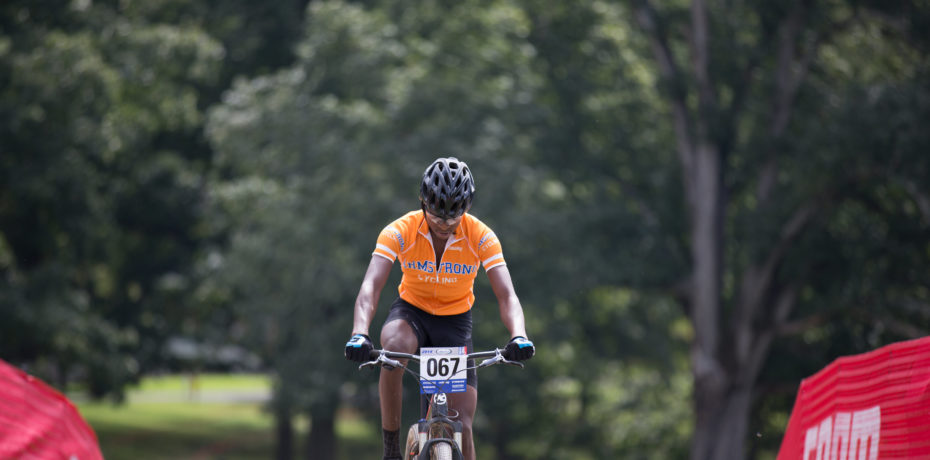By Craig Dodson
What does cycling have to do with low-income kids from public housing? Nothing and everything. When I started Richmond Cycling Corps (RCC) in 2010, it was merely a project: a “let’s see what would happen if …” kind of thing. Well, in our first year, a group of four kids from Fairfield Court crushed 50 miles during a torrential downpour at an event in Philadelphia, and we knew we had something. We wouldn’t figure out what that “something” was for another four years, but we were eyes-wide-open and led with a philosophical approach in reaching the youth in Richmond who frankly others weren’t able to reach.
Our program grew in 2011, and our first youth, at age 16, rode 100 miles in a single day. In 2012, we had another three youth ride 100 miles in a single day. By 2013, our fifth kid, barely 14, rode 100 miles. Other kids, as young as 10 years old, were cranking out 50- and 60-mile, uphill rides in rain and heat.
Every kid was a product of public housing. How was this happening? Kids who were getting kicked out of school, had parents in jail, were angry at the world, and didn’t trust anyone. Clad in spandex, these kids pushed harder at a fringe sport than they’d ever pushed at anything.
By 2014 we launched the nation’s first and only inner-city high school cycling team out of Armstrong High and built the first and only mountain bike park smack-dab in the middle of Fairfield Court, behind Armstrong High. By 2015, we expanded to form the nation’s first and only inner-city middle school cycling team out of Martin Luther King Middle School. Both schools feed primarily from the five housing projects in the East End: Gilpin, Whitcomb, Fairfield, Creighton, and Mosby.
As the program grew, we assembled a cluster of “common denominators” that were helpful in working with kids from public housing. They’re few and simple, but concrete. First, keep the number of youth small; otherwise you jeopardize the quality of the work. Second, hold the youth highly accountable; otherwise you’re only enabling what has become a disposition of the opposite. And most important, match the ever-evolving desires of the youth as they age within the program.
What does this have to do with cycling? Nothing.
What most people don’t know is that we use cycling as a way to lure youth into case management. No kid in public housing would sign up for something called case management, but they will sign up for the chance to ride bikes.
Case management wasn’t part of our original plan, but as early as 2010, the kids with whom I’d been working began telling me things – about the school, home, drugs, and violence. Seems like their parents did not have enough funds or resources to reach out and avail of alcohol or drug rehab services. Therefore, they trusted me, so I helped. More and more, the kids began leaning on me for help … and more and more, I began to see the gaps in where they needed help the most. I became a figure at their school, pulling them out of class to talk. I began heading out to Fairfield Court at all hours of the night to check on “my kids,” to help with a problem, or to simply talk to a kid that needed to be heard. Throughout it all, I learned that the kids don’t care about credentials on a laminated ID badge. They choose who they want to help them and somehow, I became that person. Although what I was doing was scary at times, I couldn’t turn down an honor that few receive in their lifetime.
It all comes back to bikes. Cycling hammers out the character development. I, along with my awesome staff and team of pro-bono professionals, handle the problems off the bike and the kids do the rest. Totally unplanned, or even unimaginable, this outreach package has gone on to produce astounding results with our youth, 90 percent of whom have been with us for at least four years. None are incarcerated. None currently sell or use drugs. None are involved in gang relations. And not one has failed a grade since joining RCC. Behavioral changes have been most notable: we challenge their choice of vocabulary and reactionary habits, encouraging our kids to use appropriate words to express fear, anger, likes, and dislikes.
Along the way we have produced two state champions, a runner-up, three varsity athletes, and as a team, RCC has finished third in the state twice in just three seasons. Richmond Cycling Corps, as a racing team, is not a novelty.
RCC’s role is to provide programming boundaries-rubber bumpers that guide our youth’s success-but don’t enforce a finite direction. We create, we try, we adjust, and we change.
RCC is now celebrating its fifth year as an organization, and we are becoming, in essence, experts at what we do at the ground level: understanding and subsequently reengineering the behavioral gaps for kids in public housing. Who could have imagined that a bicycle was such a powerful tool in helping those who need help the most in this city? Somehow, we did.


